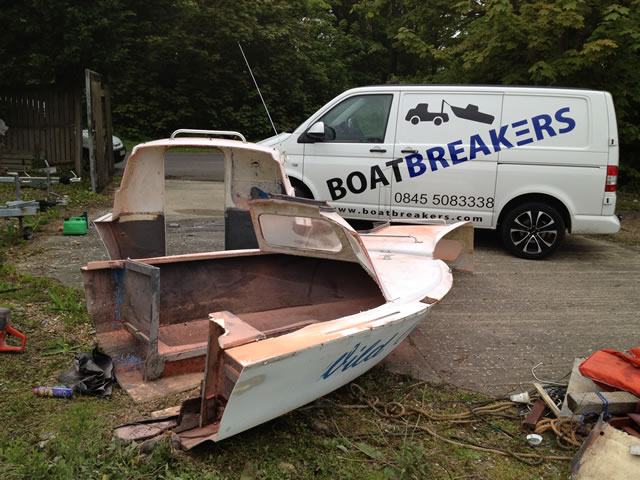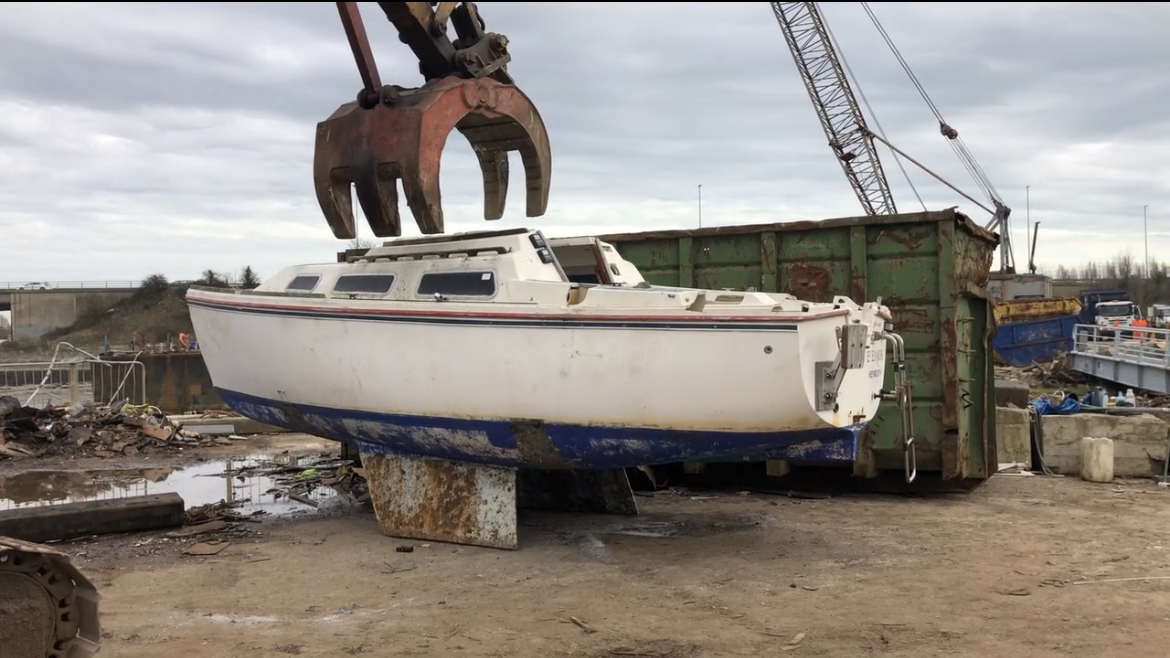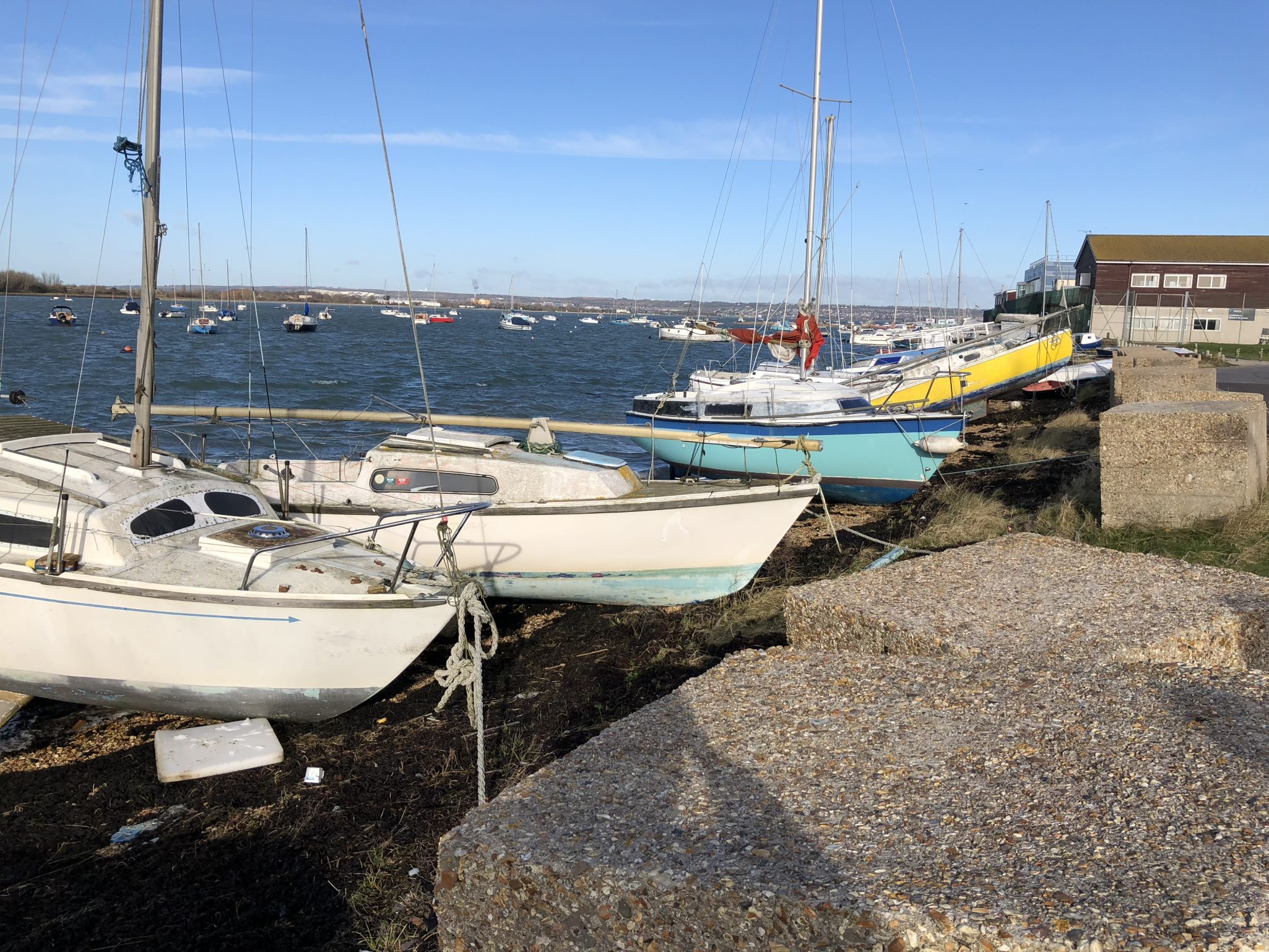Americans Count the Cost After Hurricane Irma

Florida has taken a real beating during the most recent hurricane season and it’s hit many boat owners the hardest. Every news bulletin that has covered the recent storms has shown the devastating effect of the storm on the local boating community. Miami Herald reporter Linda Robertson interviewed one unlucky boat owner. The original article can be found here.
David Wilson quit his desk job as a computer programmer in land-locked Indianapolis 18 months ago, bought a 35-foot sailboat named Firefly and moved to the Dinner Key mooring field in Coconut Grove.
“I fell in love with the idea of living aboard because you never see sad people on sailboats,” he said. “Except now.”
Hurricane Irma blew through Miami and left distraught boaters in her wake. Some boats sank. Some broke loose from their mooring balls and have gone missing. Some, like Wilson’s, were pulverized, reduced to pieces of a fiberglass jigsaw puzzle.
“At first I couldn’t find it even though I drove by it twice,” said Wilson, who finally located the remains of Firefly on a spoil island. “Unrecognizable shards. There’s a 10-foot chunk of the top deck. The engine is on the sand.”
Wilson figures his vessel, like many others, was plowed down by boats that ripped free in sustained winds that peaked at 85 mph on Sunday afternoon, according to measurements by the marina’s channel marker gauge.
“It’s like a hit-and-run collision, and it created a domino effect,” he said.
Of the 108 boats in the city of Miami’s mooring field, Wilson and his fellow sailors counted 10 that were intact Monday morning after the storm passed.
Dinner Key Marina, which has 580 slips, suffered major damage to three of its seven piers. At least 32 boats sank, said marina manager Daniel Muelhaupt, who is still taking inventory.
“The destruction was unexpected and massive to marinas and boats up and down the bay,” said Daniel Rotenberg, director of the city’s department of real estate and asset management. “It looks like a bomb went off.”
Florida’s marine industry, which has an $11 billion annual impact on the state’s economy, according to the National Marine Manufacturer’s Association, will be in recovery for months.
“People are emotionally attached to their boats, so this really hurts the community,” he said. “Our love of the water is why most of us live down here.”
Debris and boat parts deposited by Irma’s storm surge still littered the shoreline Thursday between the water and Bayshore Drive — centerboards, hatches, orphaned cushions, ladders to nowhere and, yes, even a kitchen sink.
Trash, stray dinghies and life jackets floated in the water. The fuel dock at Grove Bay restaurant (formerly Scotty’s Landing) was destroyed; one sailboat lay sideways, its hull cracked open and its contents spilling into the bay. Another was submerged, its mast poking up like a periscope.
A catamaran’s starboard pontoon was busted open, its bumpers still attached. Boats named Wizard, Hallelujah and Misty Moon were stranded in the Seminole ramp parking lot or stuck in the mangroves.
At Dinner Key, various owners said they were searching for boats that had disappeared. Either they were under water or flung onto land somewhere. Some who had located their vessels – including one aground in Peacock Park – said their boats had been looted. Police were patrolling to prevent looters from driving up to the docks in their own boats to burglarize yachts.
Sailors were calculating what it would cost the owner of the boat that they joked has “scored a touchdown” on Ransom Everglades School’s bayside football field to remove it. Others were complaining about a Coconut Grove homeowner who has threatened anyone trying to remove the four boats in his backyard with a gun.
Sam Mahuria was somewhat fortunate in that his 33-footer Morpheus wound up riding in from the mooring field and sliding into slip one. But it’s got three feet of water in it.
“She’s not so pretty anymore,” said Mahuria, a boat broker who said most of his clients lost their boats.
Wilson said his boat and belongings were worth about $32,000 but he’ll be unlikely to recover more than $3,000 from his insurance policy.
“I lost all my stuff — my paperwork, generator, clothes, guitar, GPS, water maker, solar panel,” he said. “For most of the live-aboards, repairs would cost more than the value of the boat.”
Wilson was in Boston racing Stars as Irma approached. He considered having someone move Firefly to a canal, but with the mooring balls rated to hold through 125 mph winds, four lines securing the boat and breakwaters on two sides, he figured it would be OK. But when Irma headed up the west side of the state instead of the east, the mooring field became less protected from the winds.
“The preparations you make only go so far,” he said. “Then it’s fate.”
Written By: Luke Edney
Luke completed a journalism degree in Brighton University and fortunately for us uses this in his communications, Facebook posts, Tweets and emails to tell all our enquirers and followers what we are up to. Without Luke we would be lost, he runs the office, keeps us organised and is like a terrier and never lets a tricky boat disposal job go un-photographed or Tweeted about.
He also manages all of our enquiries passing them to whoever in the team is the best suited to deal with it. We are teaching Luke how to drive a motorboat or sail a yacht so while he’s learning we suggest you keep out of the Solent!
When he’s not at work he’s a massive football fan (his Dad used to play for Portsmouth FC years ago) and seems to know everything there is to know about any player, anywhere. Next time you ring and he answers, think of a tricky football trivia question and ask him
Date Published: September 18, 2017
Last Modified: June 28, 2022
Related Articles
- Published On: July 20th, 2017
End of Life Boats are a problem that won't just go away. During the last sixty years, the marine industry has been churning out increasing numbers of recreational and working craft, the majority being fibreglass (glass fibre reinforced polyester).
- Published On: November 1st, 2018
Next time you visit a marina, boatyard, canal or even just a harbour see how many boats you see that you think are end of life.
- Published On: February 14th, 2023
Where is the nearest boat disposal yard near me? That will be the question most owners will ask when they have a problem boat to shift.
- Published On: February 7th, 2018
At Boatbreakers, we were recently asked to answer some questions from Asia Pacific Boating Magazine for an article they are writing about boat disposal and end of life boats. Below is a copy of the questions and our answers.




